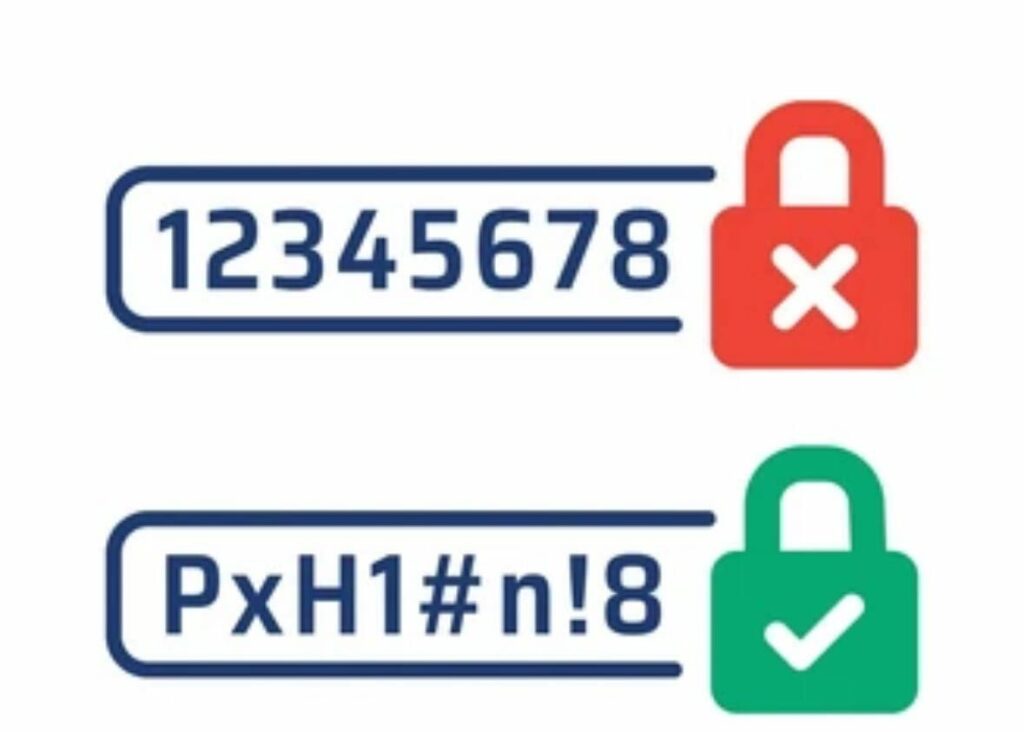Despite there being means of visualizing one’s password security and its strength, it is not immediately clear how password strength works and where the fine line is between a random, unpredictable password and an easy to guess password. What if there was a means for the average person to understand where that line resides? Password strength is the basis for protecting sensitive data to ensure regulatory compliance and maintaining trust. With reliance on online systems and fast-rising threats, reliable password practices are necessary. Compromised and weak passwords can create loopholes for cybercriminals. The ensuing loss of confidentiality leads to data breaches.
Exploring key aspects of password security involves evaluating password strength to resist brute force attacks and using password managers for secure and unique passwords. It also includes leveraging multi-factor authentication (MFA) to enhance protection and recognizing the risks of using browser-suggested passwords and potential vulnerabilities if the browser or device gets compromised.
How secure is my password?
One of the ways to access the strength of a password is through entropy. Entropy measures password complexity by assessing its randomness, indicating how unpredictable and difficult it is for attackers to guess. Higher entropy, or more randomness, in lay man’s terms means a more secure password. Factors that contribute to higher password entropy include:
- Length: Longer passwords are generally harder to crack.
- Complexity: Including a mix of uppercase and lowercase letters, numbers, and symbols.
- Unpredictability: Avoiding predictable patterns like common words and phrases.

If one is curious about understanding how secure their password is this Password Entropy Calculator helps an individual understand password strength and evaluate their own passwords. A secure password should have high entropy, which makes it resistant to brute-force attacks, where attackers systematically try every possible combination of passwords or keys until they find the correct one.
How password managers enhance security?
According to the German Federal Office for Information Security (BSI), using a password manager is one of the most effective ways to securely store and manage passwords. These standards ensure that the strategies outlined are both robust and reliable, offering a trusted framework for enhancing password security. Password managers are powerful tools for improving password security and convenience. They securely store and manage passwords, making it easier to use complex, unique credentials for each account. This not only enhances security by reducing the risk of weak or reused passwords, but also simplifies the online experience by eliminating the need to remember multiple passwords. Password managers enhance security by:

- Generating strong passwords: Password managers create random, complex passwords that are nearly impossible to crack.
- Secure /storage: Passwords are encrypted and stored securely, reducing the risk of exposure.
- Unique passwords for every account: Using unique passwords for each account limits the damage if one account is compromised (for instance if logging into a service while using public WiFi leads to a third party intercepting an individual’s credentials).
- Automatic filling: Password managers can auto fill login credentials, reducing the risk of phishing attacks by ensuring only the authentic individual can enter credentials on legitimate sites.
There are many popular password managers that offer both free and premium versions to suit individual or organizational needs. Organizational password management needs often focus on collaboration, centralized control, and compliance with security policies, requiring features like shared vaults, role-based access, and audit trails. In contrast, individual users prioritize personal security, ease of use, and cross-device synchronization to protect their accounts.
How Multi-factor Authentication (MFA) adds an extra layer of security
While strong passwords are essential, they are not reliable. The European Union has emphasised how MFA protects consumer sensitive data, enhances operational resilience, and mitigates cybersecurity risks. Multi-factor Authentication (MFA) adds an extra layer of security by requiring users to provide two or more verification factors to access an account. These factors typically include a combination of at least two of the following:
- Something you know: A password or PIN.
- Something you have [i.e. physically]: A smartphone, hardware token, or security key.
- Something you are: Biometric data, such as fingerprints or facial biometrics.
- Somewhere you are: The location matches the expected location (VPNs).

MFA significantly reduces the risk of unauthorized access, even if a password is compromised. According to Microsoft, MFA can prevent 99.9% of account compromise attacks, making it a crucial component of any security strategy.
Password security and compliance
Many industries are subject to regulations that require high password security to protect sensitive data such as:
- The General Data Protection Regulation (GDPR): Mandates the protection of personal data for EU residents.
- The Payment Card Industry Data Security Standard (PCI DSS): Requires strong password policies for organizations handling credit card data.
- Health Insurance Portability and Accountability Act (HIPAA): Enforces password security to safeguard patient information.
Failure to comply with these regulations can result in huge fines and legal consequences. Implementing best practices for password security is not just about protection best practices, it’s a compliance necessity.
Are browser-suggested passwords safe?
They are generally safe and convenient because modern web browsers like Chrome, Firefox, and Safari use encrypted storage and advanced algorithms offering built-in password managers that suggest and store passwords. While convenient, there are some risks to consider.
- Limited security features: Browser-based password managers may not offer the same level of encryption and security as dedicated password manager apps.
- Device dependency: If a device is compromised or lost, the stored passwords may be at risk, especially if the device lacks proper security controls.
- Synchronization risks: Attackers could make passwords synced across devices via a cloud service vulnerable if they compromise the cloud account.
- Phishing vulnerability: Phishing websites can exploit auto fill features by cloning legitimate sites.
When choosing to use browser-suggested passwords, ensure an up-to-date browser, use strong device security, and consider enabling MFA for cloud accounts.
Conclusion
Password security is a staple of digital safety and regulatory compliance. Creating strong, unique passwords, using password managers, and enabling multi factor authentication helps individuals and organizations reduce unauthorized access and breaches.
While browser-suggested passwords offer convenience, understanding their limitations and risks is essential. Ultimately, a proactive approach to password security can protect an individual’s data, ensure compliance, and build trust with customers.
Feel free to reach out to TechGDPR for any clarification of technical compliance needs.